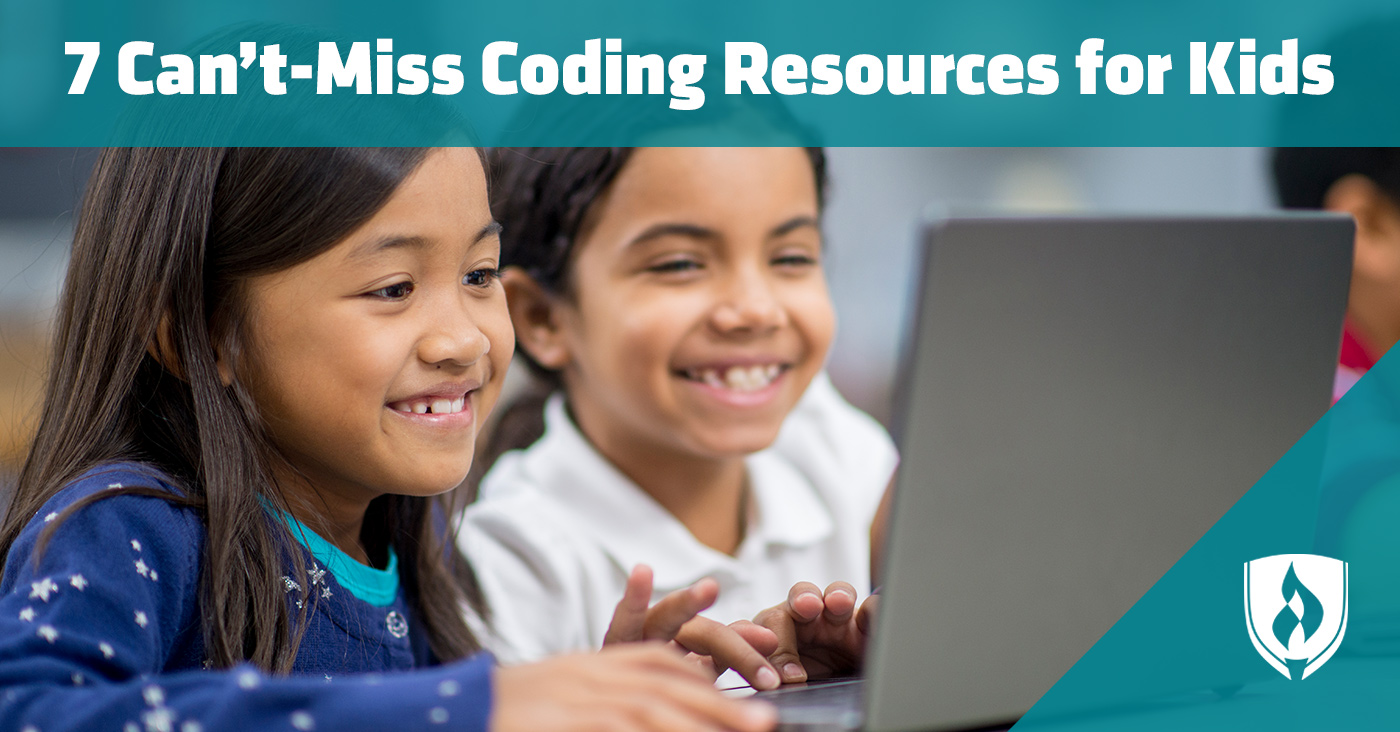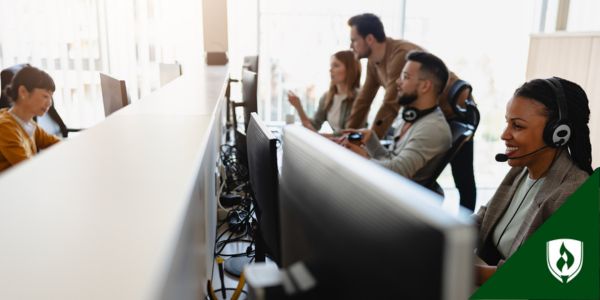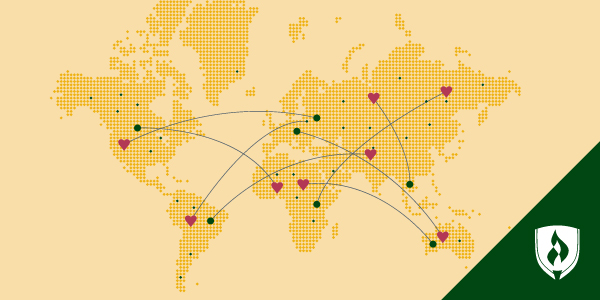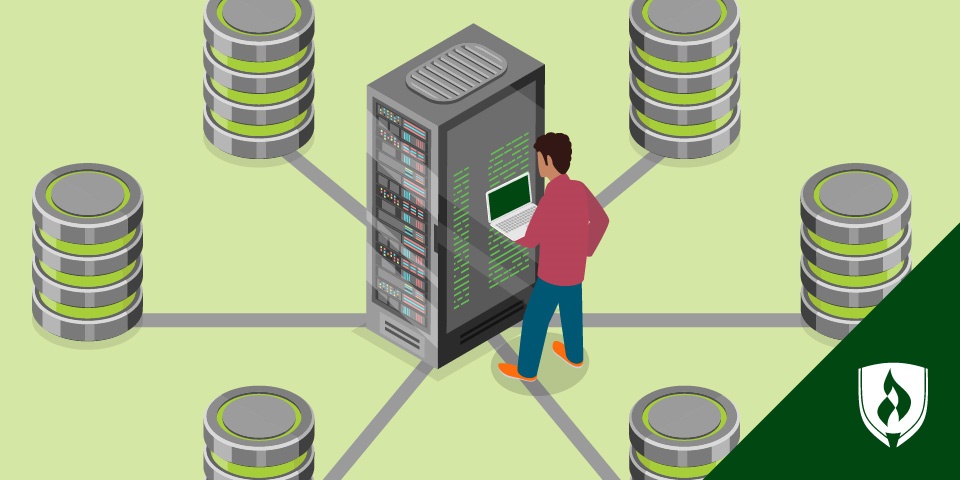
It seems everywhere you turn lately there’s someone pushing the value of learning to code and the benefits of computer science-related education. And with the highly connected digital world we live in, this push makes a lot of sense. We live our lives with devices that are almost always just an arm’s length away, and there’s very little sign programming skills will become less important in the digital economy of today and the future.
Being the smart, proactive person you are, you’re probably wondering what you can do to set your children up for success in a programming-heavy future. You’ve come to the right place. In this article, we’ll highlight some of the best resources for teaching kids about programming and coding. Not a kid? Don’t sweat it—these coding resources are actually helpful for anyone looking to build a foundation of coding and programming literacy. And if you're interested in exploring how technology impacts kids today, check out our article on 'Kids and Technology' for insights into navigating the digital landscape with your children.
Why is teaching kids to code so important?
It’s easy to understand the appeal of learning to code if you’re someone who plans to enter the job market soon—there’s plenty of demand for programming and coding professionals. But a professional job search is much further down the road for kids.
So you may be asking, “What’s the rush?” There are several strong reasons for teaching kids to code at a young age.
For one, children’s brains are wired for learning, and they pick up on concepts quickly as they grow. This approach is similar to what you’d see with learning a second-language—the sooner you get started and more time you spend immersed in it, the easier it is to pick up.
Programming is, in a way, learning to speak another language. But instead of shifting around verbs, nouns and adjectives, kids are learning to manipulate variables, attributes and logical conditions.
Learning to program can also reinforce other foundational subjects. For example, learning about mathematical concepts can be super dry if no context is given, but when viewed through the lens of a programmer, these ideas can start to click and be applied practically. Add to that the boost to problem-solving, creativity and critical-thinking skills, and it’s easy to see why kids should be encouraged to get an early start on programming education.
7 Coding resources for kids worth checking out
Now that you’re aware of the widespread benefits of teaching kids about coding, you’re probably wondering how you can encourage this type of behavior. Look no further. We identified seven entertaining and educational coding resources for kids.
1. Google® Made with Code
What is it? Google’s Made with Code resource was created to “Champion creativity, girls and code, all at once.” This site features a wide variety of coding game “projects” that are a perfect fit for any girl curious about coding. Additionally, the site features several engaging profiles of women in computer science and highlights some of the amazing work they’re doing.
How it helps: The games and projects featured on Made with Code are very accessible for anyone to pick up and try as they use Google’s Blockly library. This visual format keeps things simple—instead of being greeted with a mess of brackets and confusing syntax, code elements are broken down into simple pieces where it’s easy to understand what will happen if you make a change. Couple this easy-to-approach format with games and content specifically geared toward the interests of girls and you’ve got a fantastic coding resource.
2. Code.org®
What is it? Code.org is a nonprofit organization dedicated to expanding access to computer science education in schools. But their work doesn’t stop at just the traditional classroom—their website offers an incredible wealth of resources aimed at helping kids of all ages learn the fundamentals of coding. This includes fun games and projects as well as age-appropriate online courses.
How it helps: Code.org offers a fairly comprehensive suite of games and learning materials for anyone interested in coding. Everything from basic HTML to JavaScript® and Python® is covered, though some advanced courses may involve fees.
3. Blockly games
What is it? Blockly games is a project developed by Google to encourage coding literacy. This website keeps it simple, offering eight straightforward games with tasks and commands that get progressively more complex. This is another excellent starting point for getting younger kids comfortable with coding concepts.
How it helps: As we mentioned in the Made with Code resource, the Blockly format’s biggest appeal for beginners is its simplification of the elements of coding. You aren’t thrown into the deep end with a collection of brackets and semicolons that look like ancient alien texts. Instead, each function or element takes the form of a block that can snap together with other blocks to modify them—which is really a nice visual representation of what a lot of coding is once you learn the languages.
4. Tynker’s Hour of Code® activities
What is it? Tynker, a business dedicated to creating resources and tools for teaching kids to code, offers several free activities and lessons as part of their Hour of Code offerings. These games and activities catch kids’ attention with well-known brands like Barbie™, Hot Wheels™ and Minecraft® and cover coding fundamentals in an approachable way.
How it helps? This collection of activities, lessons and games is a great resource for grade school-aged kids. Kids will learn the fundamentals of how code is structured and how elements of code interact with simple, step-by-step instructions. While these may not all be the most advanced coding challenges, this site will certainly help break the ice and give your kids a welcoming entryway into learning coding skills.
5. Scratch
What is it? Scratch is free a programming language and online community that allows kids to create their own interactives stories, games and animations and share them with the community. The Scratch language is a simplified look at common programming and coding functions, similar to what you’ll see in many of these resources.
How it helps? Scratch was created in 2007 and is another excellent option for parents looking for an approachable introduction to programming and coding. While this language is relatively stripped down when compared to languages used for commercial purposes, the skills developed by learning it remain universally useful. The Scratch community also remains strong, with users sharing projects, asking for help and even “remixing” existing projects created by others.
6. Code Monster
What is it? This handy tool keeps things super simple. Users follow instructions from a friendly monster to manipulate and write JavaScript code. The instructions and tasks get gradually more difficult and challenge users to write their own code once they get their bearings.
How it helps? Sometimes the best way to learn something is to just roll up your sleeves and start tinkering. This tool gives learners a chance to dive in and make changes to working code—and see the results in real time. Along the way they’ll learn new concepts and more complex ways to use JavaScript.
7. Khan Academy®
What is it? Khan Academy offers a wide variety of free courses for a variety of subjects, but their computing section really drills down into the basics of computer science and related topics. These courses feature step-by-step lessons with videos and assignments to test your knowledge.
How it helps? This is an excellent resource—and challenge—for advanced learners. Instead of working with faux programming and coding languages, the courses at Khan Academy focus on languages that can be applied in the professional world.
Help encourage coding for kids
Whether you’re a kid, an adult or somewhere in between, the coding resources above will help demystify the world of computer programming—and that’s a huge step! Getting comfortable with coding is a great start, but where do you go from here?
There are quite a few coding and programming languages, all with their own sets of syntax and functions. So where should you focus your efforts? Narrow down your options by checking out our article, “What Programming Language Should I Learn? Decoding the Basics.”
Related Articles:
Google is a registered trademark of Google LLC.
JavaScript is a registered trademark of Oracle Corporation.
Python is a registered trademark of The Python Software Foundation.
Minecraft is a registered trademark of Mojang Synergies AB.
Barbie and Hot Wheels are registered trademarks of Mattel, Inc.
Code.org and Hour of Code are registered trademarks of Code.org.
Khan Academy is a registered trademark of Khan Academy, Inc.




